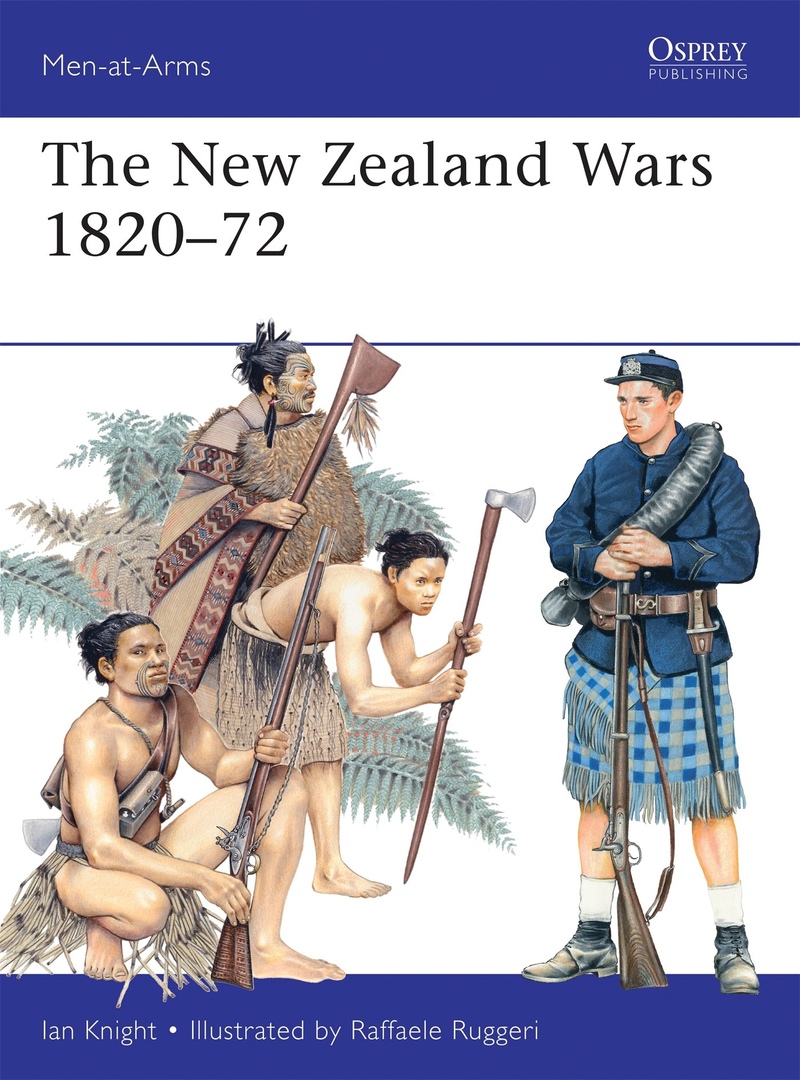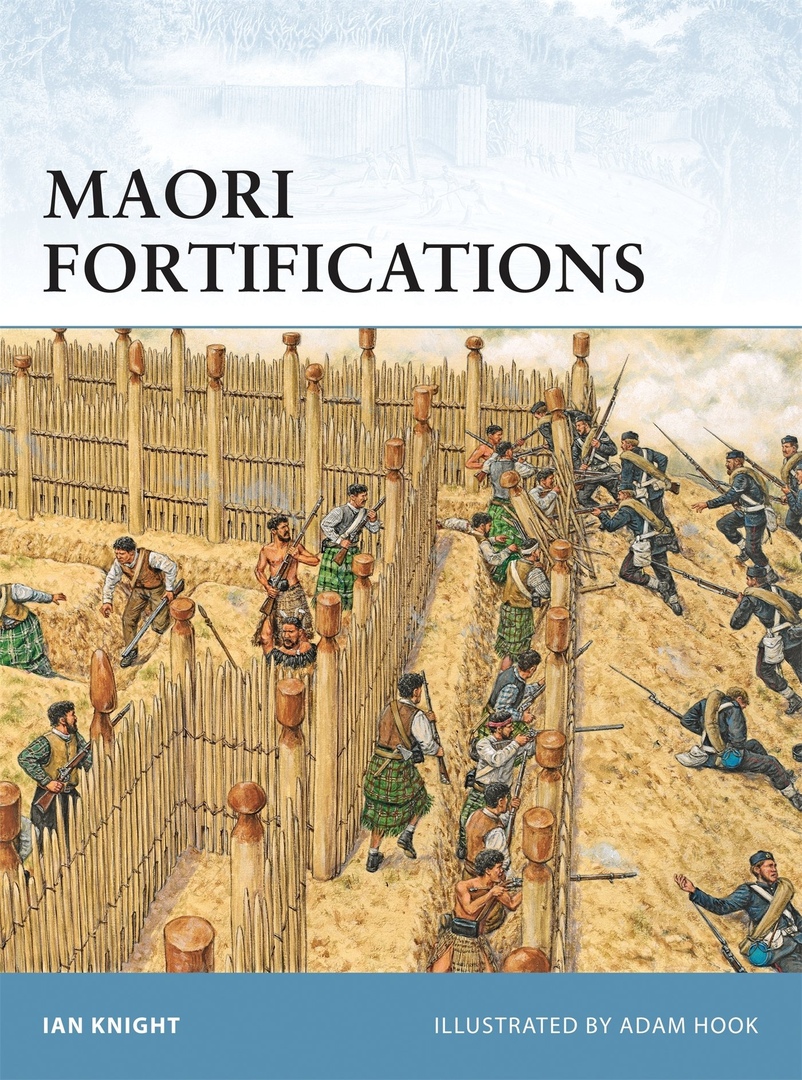The New Zealand Wars, 1820-72 (Men-at-Arms
1) The New Zealand Wars, 1820-72 (Men-at-Arms 487) – Ian Knight
Osprey Publishing | 2013 | PDF
Between 1845 and 1872, various groups of Maori were involved in a series of wars of resistance against British settlers. The Maori had a fierce and long-established warrior tradition and subduing them took a lengthy British Army commitment, only surpassed in the Victorian period by that on the North-West Frontier of India. Warfare had been endemic in pre-colonial New Zealand and Maori groups maintained fortified villages or pas. The small early British coastal settlements were tolerated, and in the 1820s a chief named Hongi Hika travelled to Britain with a missionary and returned laden with gifts. He promptly exchanged these for muskets, and began an aggressive 15-year expansion. By the 1860s many Maori had acquired firearms and had perfected their bush-warfare tactics. In the last phase of the wars a religious movement, Pai Maarire (‘Hau Hau’), inspired remarkable guerrilla leaders such as Te Kooti Arikirangi to renewed resistance. This final phase saw a reduction in British Army forces. European victory was not total, but led to a negotiated peace that preserved some of the Maori people’s territories and freedoms.
2) Maori Fortifications (Fortress 81) – Ian Knight
Osprey Publishing | 2009 | PDF
The Maori people of New Zealand were experienced field engineers and it was common practice to protect villages with surrounding entrenchments and wooden palisades, known as pas. However, it was not until 1845, with the first fighting between the Maori and the British, that it became clear just how strong and sophisticated the Maori fortifications were. For the best part of 20 years, the Maori held off the dominant and technologically superior British forces, by adapting and developing their defences in response to new British assaults. This book explores the evolution and design of Maori fortifications, and charts the course of a conflict that would ultimately see the British break the Maori pas, leading to a bitter guerrilla bush war.
 1 / 2
1 / 2 2 / 2
2 / 2
